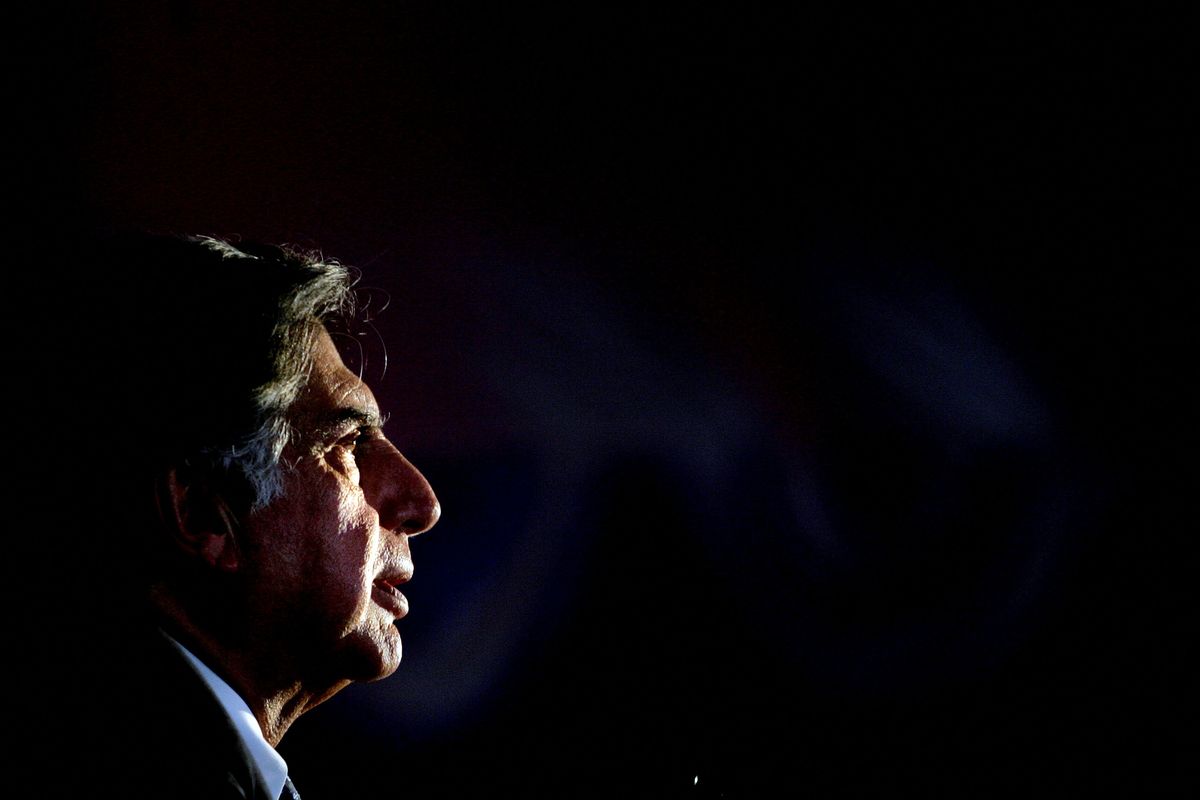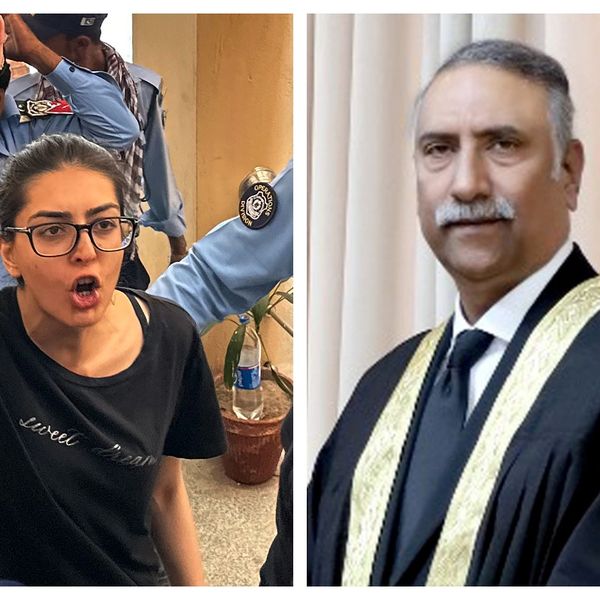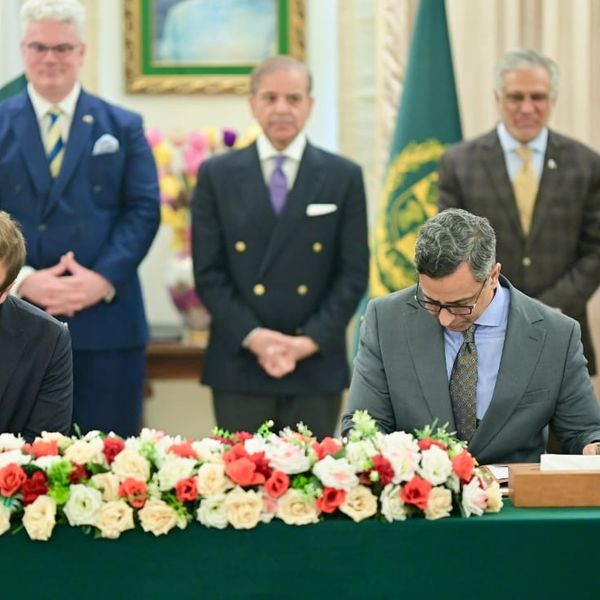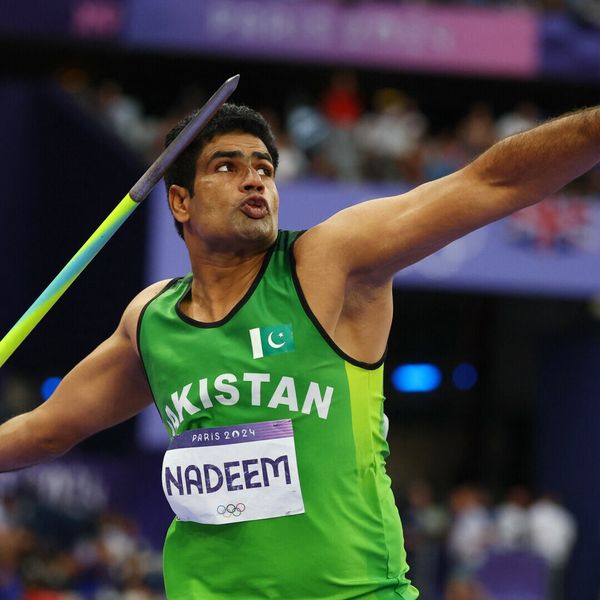Visionary Indian industrialist Ratan Tata dies at 86
Former group chairman of Tata Group leaves behind a legacy of business acumen, philanthropy, and personal integrity.

Rana Tabbara
Senior Business Producer
Rana Tabbara is a UAE-based reporter and content creator known for dynamic storytelling, impactful reporting, and high-profile interviews. She interviewed leaders including the UAE Minister of Energy, the Australian Prime Minister, the Saudi Minister of Tourism, the Armenian Minister of Economy, and CEOs of major companies. Rana covered big events like the World Government Summit, LEAP, Cityscape KSA, IDEX, among others. Her previous experiences include The New York Times, CNN Business Arabic, and L'Orient-Le Jour.

Former chairman of India's Tata Group, Ratan Tata addresses a gathering during the inauguration of the development center of Advinus Therapeutics in Bangalore, 29 November 2007.
AFP
Ratan Tata, former group chairman of India's Tata Group, passed away at the age of 86, leaving behind a legacy that not only reshaped the Indian conglomerate but also redefined the role of business in society. His passing was announced by Tata Group on Wednesday.
“It is with profound sadness that we bid farewell to Mr. Ratan Naval Tata, a truly extraordinary leader whose immense contributions not only shaped the Tata Group but also left an indelible mark on our nation,” the company said in the statement. According to Reuters, Tata had been in intensive care at a Mumbai hospital in the days preceding his death.
- YouTubeyoutu.be
Born into one of India’s most storied industrial families, Ratan transformed the Tata Group from a domestic conglomerate into a global powerhouse. Joining the family business in 1962, his early efforts at National Radio & Electronics Company showcased his ability to reverse fortunes.
But it was his tenure as chairman, beginning in 1991, that would transform the Tata Group into a global powerhouse. Under his leadership, the group made bold acquisitions, including Tetley, Corus, and Jaguar Land Rover, and became a symbol of India’s industrial ambitions.
Beyond the corporate sphere, Ratan's impact was deeply personal — he became a symbol of integrity and visionary leadership for generations of Indians. He championed projects like the Tata Nano, an ambitious effort to provide affordable transportation to India’s masses, and ensured that a substantial portion of Tata Sons' share capital was devoted to philanthropic causes.
Indian Prime Minister Narendra Modi called Tata "a visionary business leader, a compassionate soul, and an extraordinary human being."
Shri Ratan Tata Ji was a visionary business leader, a compassionate soul and an extraordinary human being. He provided stable leadership to one of India’s oldest and most prestigious business houses. At the same time, his contribution went far beyond the boardroom. He endeared… pic.twitter.com/p5NPcpBbBD
— Narendra Modi (@narendramodi) October 9, 2024
A graduate of Cornell University, Tata's academic background in architecture perhaps shaped his ability to see both the structural and aesthetic aspects of business. After taking over from his uncle, J.R.D. Tata, during a period of significant economic reform in India, Ratan enforced cohesion within the diverse Tata companies, modernizing leadership by promoting younger talent and setting clear retirement ages, according to Reuters.
He also founded Tata Teleservices in 1996 and took Tata Consultancy Services public in 2004, propelling it to become a major player in the global IT industry.
Tata’s influence, however, reached far beyond the balance sheets of the Tata Group. His global acquisitions were seen not just as business maneuvers but as a quiet assertion of India's growing economic presence on the world stage.
The pride he took in creating the Tata Indica, the first car designed and built in India, stood as a testament to his belief in the potential of Indian innovation. He also championed the Tata Nano, a car priced at INR 100,000 (about $1,200) with the goal of providing affordable transportation for India's masses, according to Reuters.
Though Ratan never married, his private life was often a subject of speculation. He remained guarded about his personal relationships, though he shared in interviews that he had come close to marriage four times.
One of his more enduring friendships was with actress Simi Garewal, with whom he was often linked, though both denied any romantic involvement, according to The Times of India. Garewal has always spoken highly of Tata, describing him as a gentleman with unmatched humility and integrity.
They say you have gone ..
It's too hard to bear your loss..too hard.. Farewell my friend..#RatanTata pic.twitter.com/FTC4wzkFoV
— Simi_Garewal (@Simi_Garewal) October 9, 2024
In recent years, even in retirement, Ratan continued to make his mark as a mentor and investor in India’s burgeoning startup ecosystem, backing companies like Paytm and Ola Electric.
His leadership ensured that two-thirds of Tata Sons’ share capital was held by philanthropic trusts, further solidifying the group’s commitment to social causes.
Despite a public feud in 2016 following the ousting of his chosen successor, Cyrus Mistry, Ratan’s reputation remained untarnished.
His contributions to Indian industry earned him the Padma Vibhushan, India’s second-highest civilian honor, in 2008.










Comments
See what people are discussing